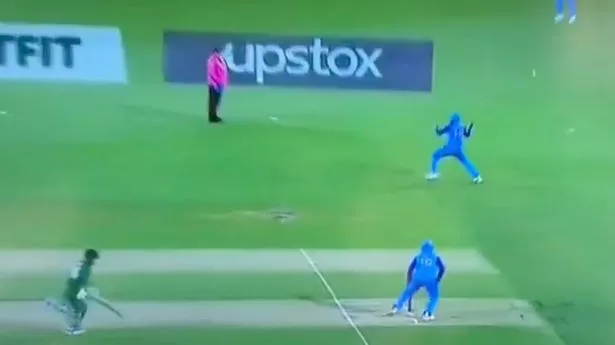Bangladesh wicketkeeper Nurul Hasan has accused Virat Kohli of 'fake fielding' in their T20 World Cup clash, with India ultimately winning the game by just five runs.
The incident occurred in the seventh over of Bangladesh's innings when Litton Das hit the ball into the offside where Arshdeep Singh gathered the ball and threw it into the wicketkeeper. However, as the ball went past Kohli at point, he feigned a throw at the non-strikers end.
Had the umpires penalised Kohli for fake fielding, Bangladesh would have been awarded five penalty runs, a potentially game-changing moment given they lost the match by that margin.
Speaking after the game, Hasan said: "There was also a fake throw. It could have been a five-run penalty. That also could have gone our way, but unfortunately, even that didn't materialise."
Jalal Yunus, the Bangladesh Cricket Board's cricket operations chairman, added: "The fake throw was brought to the umpire's notice but he said he didn't see it. That's why it wasn't taken to review. Shakib spoke extensively to Erasmus, during and after the match."
The law states: "It is unfair for any fielder wilfully to attempt, by word or action, to distract, deceive or obstruct either batter after the striker has received the ball. It is for either one of the umpires to decide whether any distraction, deception or obstruction is wilful or not."
Fraser Stewart, the MCC's Laws of Cricket manager, told ESPNcricinfo in 2017 the law was introduced as fake fielding was "becoming an increasingly used practice". He said: "The reason for the introduction of this law was that fielders were deliberately pretending to have the ball as a means of fooling the batsmen, thereby preventing them from taking further runs.
"The batsmen would see a slide and a feigned throw and would decline, for example, a second run. By the time they realised the ball had not been thrown, it would then be too late to take the second run.
"This was felt to be unfair. It was becoming an increasingly used practice at various levels of the game."
